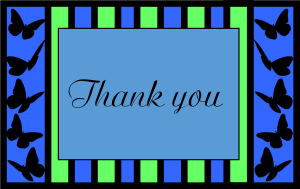I love to share good news and try to have a positive, though realistic, outlook on life and the world. It’s the reason I join in with the We Are the World Blogfest (#WATWB) on the last Friday of each month. If you like to spread good news, you can join in too. The more the merrier.
Our newsfeeds often overflow with disasters and tragedies of all sizes, from large to small, that may overwhelm us with feelings of hopelessness and a loss of faith in the goodness of humanity. WATWB aims to combat that feeling with good news stories. They say, “There are many an oasis of love and light out there, stories that show compassion and the resilience of the human spirit. Sharing these stories increases our awareness of hope in our increasingly dark world.”
This month I am sharing a story that says that while humans may be pessimistic by nature, the outlook for the future is not all bad. We are confronted daily with damage that we humans have wrought upon our Earth. Can we be meliorists and believe that we can also change the world for better? I’m certainly hoping so.
The article, Why we see the past through rose-coloured glasses, but not the future, reports the views of Steven Pinker, a Harvard psychologist (also referred to in the article to which I linked above). Pinker says that we are losing perspective and failing to make decisions that will positively impact our future. He says that many things now are much better than they were in the past; for example, life expectancy, infant mortality, fewer people living in poverty, higher rates of literacy worldwide. His views are supported by many other researchers who all agree that we need to have hope, that pessimism will not carry us forward, that we need to take actions to create a positive future.
I think we need to be meliorists and believe we can change the world for the better and take steps to ensure it is so. Spreading good news and combating the darkness through projects such as WATWB is one small contribution we can make.
Click here to read the whole article.
If you would like to join in with #WATWB, here are the guidelines:
1. Keep your post to Below 500 words, as much as possible.
2. Link to a human news story on your blog, one that shows love, humanity, and brotherhood. Paste in an excerpt and tell us why it touched you. The Link is important, because it actually makes us look through news to find the positive ones to post.
3. No story is too big or small, as long as it Goes Beyond religion and politics, into the core of humanity.
4. Place the WE ARE THE WORLD badge or banner on your Post and your Sidebar. Some of you have already done so, this is just a gentle reminder for the others.
5. Help us spread the word on social media. Feel free to tweet, share using the #WATWB hashtag to help us trend!
Tweets, Facebook shares, Pins, Instagram, G+ shares using the #WATWB hashtag through the month most welcome. We’ll try and follow and share all those who post on the #WATWB hashtag, and we encourage you to do the same.
The co-hosts for this month are:
Please pop over to their blogs to read their stories, comment and share.
Click here to join in and enter your link on the Facebook page. The bigger the #WATWB group each month, the greater the joy!

Thank you for reading. I appreciate your comments. Please share your thoughts.







